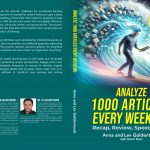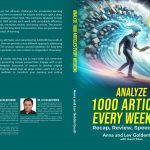To acquire accelerated learning skills, we suggest starting with a training plan that includes voracious reading. A well-structured fitness routine strengthens your body over time, so a thoughtfully crafted reading schedule can train and elevate your mind. Whether you’re a student, a professional, or a lifelong learner seeking an intellectual edge, building consistency into your reading …
Continue reading “Subjects to Read About: A 6-Week Guided Reading Plan for Lifelong Learners”







